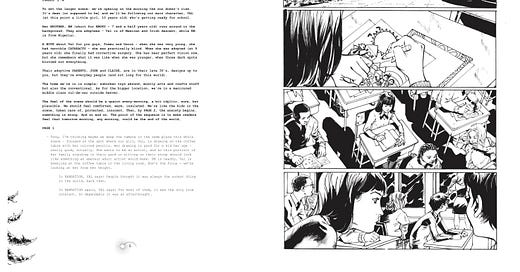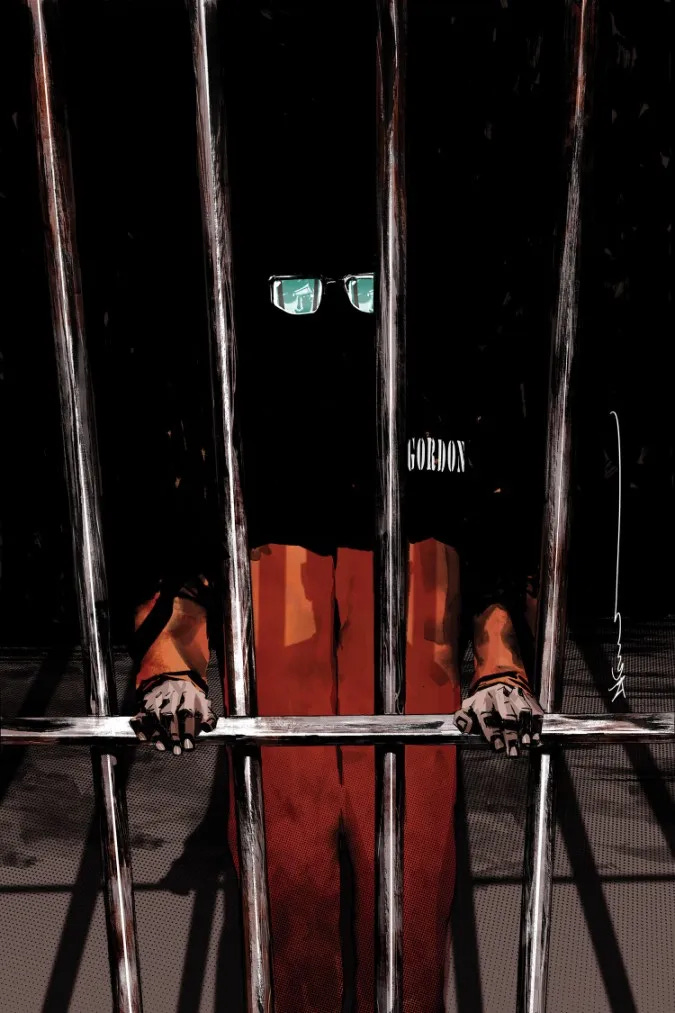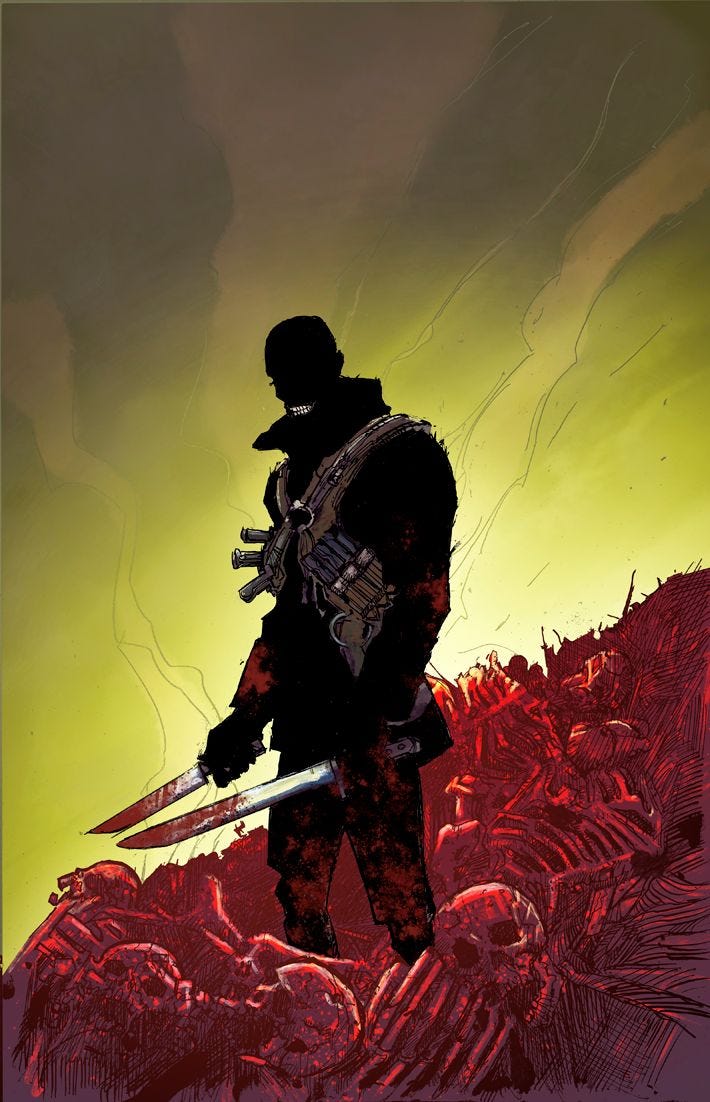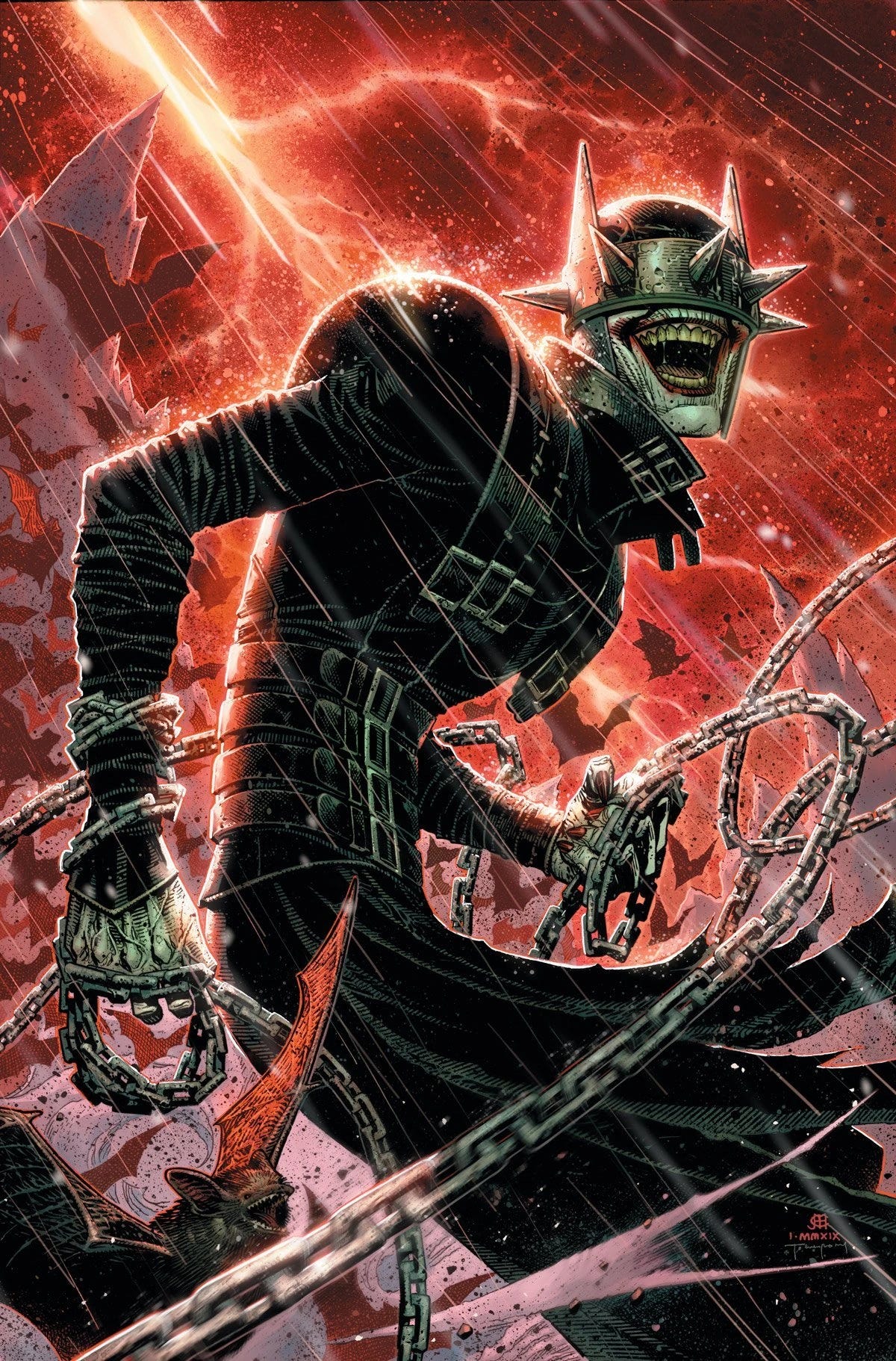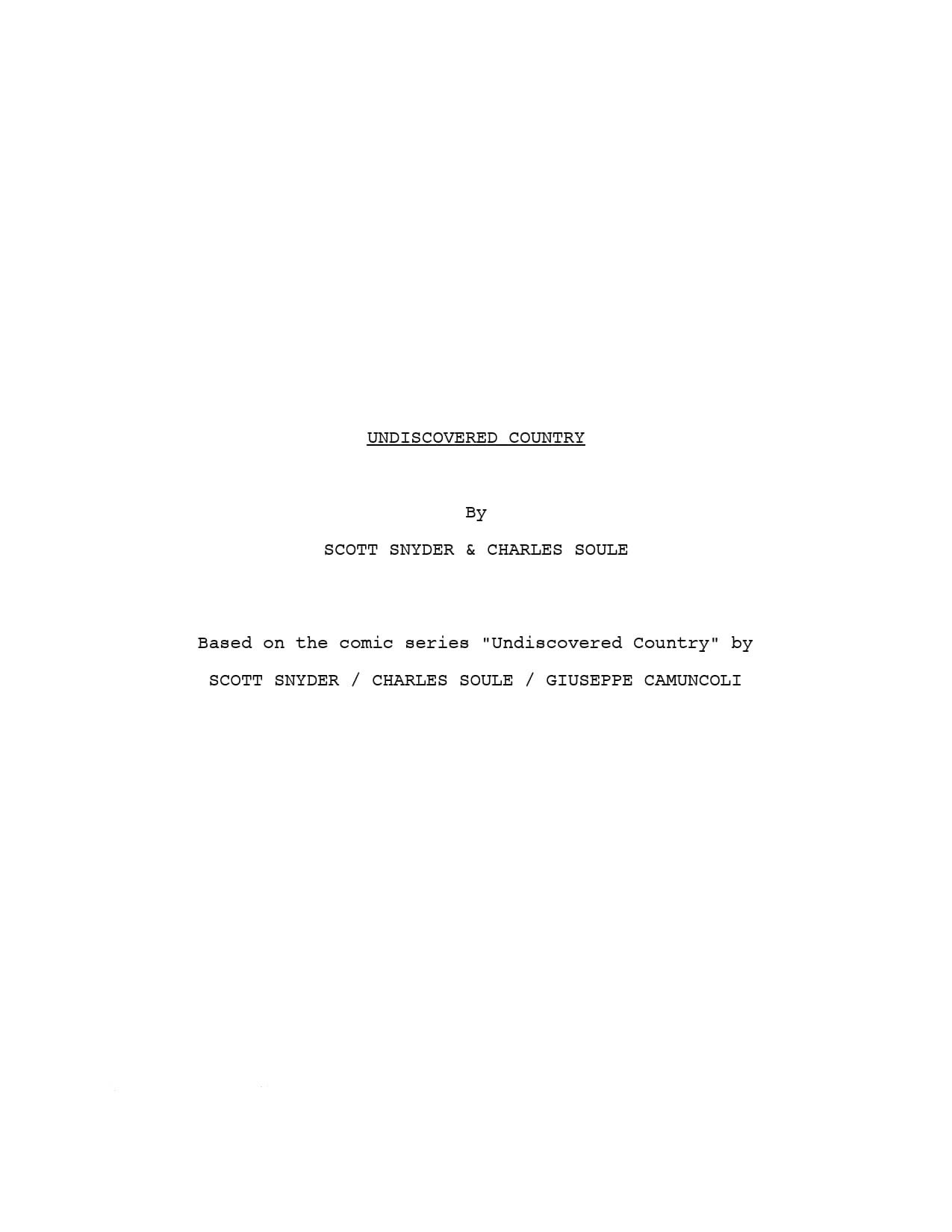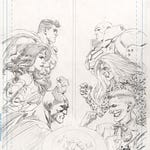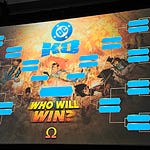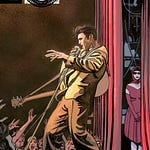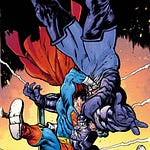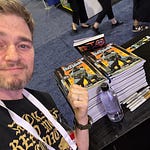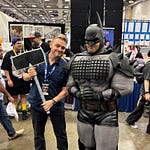Hey guys, it's Scott.
And it is Wednesday, March 15th. I’m one day off. Sorry, I know the schedule is a little bit crazy. I usually do two questions from you guys on Tuesday, but we're sort of knee deep in preliminary stuff for the Wytches TV show writers room. We’ve been meeting every day breaking down some of the season stuff and it's just fascinating and inspiring and also like, stressful, all of it, because we want to make it something really, really special. I want this to be like, your favorite show on TV, so it has to be brutal and twisted and heartfelt. And it's animated, so there's all kinds of opportunities and things that you couldn't do if it was live action. So we’re trying to take full advantage of that and we’re picking an animation studio. And all that stuff is just like, thrilling, but every challenge and everything about it is new. So it's like stepping into another country for part of the day.
But anyway, first, a little bit of housekeeping before the questions today is the day—Nocterra #12 comes out! This is the first issue of our third arc. It is an easy, easy jump-on point, the character narrating tells you what's happened so far at one point, so if you have not been reading the series, you can easily jump on this one (although I would go back and read the other two trades if you can, because we're really proud of them). But Nocterra is about a darkness that covers the earth and changes every living thing into a monster or mutation called a shade, and the only way to prevent it is to stay lit by whatever kind of artificial illumination you can find, from a candle to a glow stick to fluorescent light. So it's a really big fun action/horror series about truckers trying to bring back the sun. So anyway, I hope you'll check it out.
Tony Daniel, my co-creator and the artist on the book, is just bringing his absolute A++++ game to this one, and this is easily our craziest and biggest arc so far. And it's also the culmination of the other two arcs where it's going to change the whole series at the end in a big way. So I hope you'll tune in and give it a shot. It's our big ongoing right now. Again, there's twelve issues plus a couple one-shots, so it's a whole world to immerse yourself in. So Nocterra, stay lit!
Okay, so two questions from you. I love these two questions:
KENHAZLETT asks, “what is your take on how important it is to make an antagonist ‘relatable?’ Is it still okay in 2023 to have a villain who is villainous for the sake of villainy (without an ironic nod) or do we now need deeper motivations and, if so, how much does the reader need to understand them?”
What a great question. Well, I'm absolutely a villain fanatic as a writer. With everything that I've ever written, one of the first things I try and develop is the villain for that series. And the reason is that the villain is the extension of all the heroes fears, right? We've talked about it in class (which again, we have next week, so a little about that in a bit), but the villain, the antagonist, whether it's a monster or a person, to me, is always a reflection of not just a conflict and a challenge or an obstacle to the main character, but essentially the walking embodiment of all the things that they're afraid of, or specifically afraid of in the context of the story.
So if the main character protagonist is dealing with, in like, Black Mirror it’s Dick Grayson, a fear that the city is changing to challenge him in a different way than it challenged Bruce Wayne because now he's Batman, then the villain in James Jr., Jim Gordon's psychotic son, is going to be somebody that absolutely is the twisted reflection of Dick Grayson. If Dick Grayson is empathetic and compassionate, then we want to create a character who's devoid of those things and is a sociopath and absolutely manipulative.
So the city is changing, and his fear is realized in the kind of twisted dark reflection, hence the title of the story, in James Jr. That said, going off of that, there really is no reason at all, in my opinion, a villain needs to be relatable. I've made villains that not only are relatable, but become really sympathetic, like Skinner Sweet, one of my favorite characters I've ever written, who kind of has the inverted arc of a breaking bad, it's a breaking good arc over the course of fifty issues. He starts off pretty pitch black. And then the other villains that I've done have those—Lex Luthor is one that has relatable motivations, and even though he's wrong about his beliefs in humanity, makes some points that are pretty horrifyingly compelling. So I love villains like that.
But then I also love villains like Batman Who Laughs and Blacktop Bill, who were born and just absolutely, regardless of nurturing, are just evil. They're just complete black-hearted reflections of character's worst fears in those series that evil is real and out there and actively working against the good people of the world. Blacktop Bill is a character who says all he believes in is that he's essentially here to reclaim all light into darkness, metaphorically, but in an actual way what that means is anyone that has escaped death and thinks that it's a blessing of some kind, he goes after. This is in addition to being a hitman, and a hitman that's usually used to kill other hitmen by this one mob family. So he's an absolute sort of Iceman psychopath serial killer, but his personal passion and his deep conviction is to go after people that he thinks have a belief system that good is a guiding principle and that there's light in the universe that is designing things, that there's a plan behind it, all of that. So he is just evil. There is no light in Blacktop Bill, literally or figuratively. He’s a walking silhouette.
And similarly, Batman Who Laughs. Batman Who Laughs exists as a great white shark, that's it. There's no sympathy. Even Joker sometimes—I mean, Joker I wrote pretty evil, like straight up evil. But in his own mind, at least, Joker's motivation is that he's trying to test Batman to make him better. And therefore he is the Joker card to bat whatever hand Batman holds. So the Joker card takes on the value that maximizes the hand that you have in playing cards. It can be whatever it needs to be to win. And so he sees himself as whatever Batman needs to be stronger, and to win, he challenges him with that thing. So he's not coming at it from a place of a belief and evil, whereas Blacktop Bill is. Batman Who Laughs believes only in predation and predatory behavior and in survival. That's it. Batman always wins, that's his goal. He has no sympathy, no anything. So don't be afraid of writing characters that are fucking horrible and evil if that fits your story. You know what I mean?
Some stories call for a villain like that. And I love love love villains like that. But I also love villains like Lex Luthor and Skinner Sweet and Perpetua and all the kinds that we've created over the years that are more multifaceted. Okay, great question, Ken!
Secondly:
ingo asks, “In your opinion, how closely similar are movie scripts and comic issue scripts? Are there any key differences you notice and are aware of with regards to storytelling, scene setting, dialogue etc?”
That's a great question too. Well, yes, I mean, there's the basic structure. So a movie script is ~120 to whatever amount of pages you need, but generally the rule is a page a minute. So if it's 120 pages, 120 minutes, that's two hours. That's generally what a movie is. So it's one long construction, so there aren't breaks the way there are in televisual writing, which is closer to comic book writing because comic book writing is serialized the same way television writing is. You have an episode and then another episode and another episode. You have to keep people coming back. When I do a graphic novel or a book that's released all at once, I'm less concerned with a serialized hooks and more about a build. And that's what a movie is. So a movie uses three-act structure, generally, to keep you invested and to slowly, cumulatively raise the stakes and the tension. And it's kind of an immersive experience that builds and builds and builds. Televisual writing does that too, but it's got these little bumps within the arc. Each episode is its own mini-arc, right? It has its own little arc within the bigger arc. So it's moving along that line, that bigger arc, as a season, but it has these hooks, a little bit of a peak and an episode and then a hook and that stuff.
So it's almost like if you imagine a dragon's back (or Godzilla’s back if his spikes weren't quite as bumpy), but like, an arc with bumps along the arc in some way, as opposed to a film, which is just a smooth arc. But that's just structurally. The things that are different in terms of the storytelling or the priorities are that when you do a film or you're writing a movie, you have to keep in mind that it's going to actually be filmed, right. So there's a sense of things that suck that you have to have in the back of your head, like when we did Undiscovered Country. When I wrote that screenplay with Charles Soule, there's how much is this going to cost, right? You have a studio that wants to do it, but if you're like, “and then there's 8 million tanks…” then you're in trouble. Yeah, they can use CGI, but the bigger and more epic the thing is, the harder it is to make. So you have to be judicious and pick your scenes and make sure that you're really being smart about what things you're going to spend a ton of money on.
Same with live action on television. When we were kind of putting Nocterra out into the world (it’s at Netflix right now) in development, one of the concerns was, how big and expensive is that going to be. Well, one of the great things about Nocterra is that so much of it happens in the dark that you can kind of fudge some things. So there's that, but when we write the comic, the beauty of comic book writing, and Dan DiDio said this, I remember, on one of my first days at DC, he was like, “I want you to remember something, we don't have any fuckin’ budget!” You can do anything, you've got limitless budget. And it's one of the things that people forget about comics, that you can do wider screen storytelling, more epic storytelling, than any other medium, because there's absolutely no physical correlation in the world that you have to pay for, so you can let your imagination go anywhere. And I would always tell you, when you're writing comics, be aware of the fact that you have limitless budget, be aware of the fact that you can do things that can't be done on screen, small or large. Embrace that. Embrace those priorities, go as big as you want. And it doesn't mean always having the biggest space battle, it can mean sometimes doing things visually. Doing stuff like we didn't Clear for example, part of the fun was doing multiple panels on one page of how character sees things using different filters.
When you watch a TV show, you watch it sequentially, you watch it as an experience. You're moving linearly forward, you can't see multiple things at once and examine them and go back and see them and travel through them as you would looking at a single double-page spread. So there are all these things when it comes to comic writing that we try and express also in the class that I want you to take advantage of that are tools in your toolbox. There are ways of structuring a comic, there's the elasticity of budget, there's also the tricks that you can use, a page turn, all these kinds of things that surprise people, narration on top of what you see. So there's different tools, it's a different experience altogether. And each thing, when you're doing it, you should lean into sort of the joys and priorities (and constraints) of that medium in that way. There are other things in TV you can think of that you can't, like, I know writing Wytches right now, for example, we have music. I know that sounds silly, but like, it does actually matter a lot. The same way in like, The Last of Us, that theme, that guitar playing, it does emotional work. You're watching it and you know that these characters are bonding and you feel them where they are emotionally because a mood is created by those things.
You can't do that in comics, right? So you have other tools they don't have in TV. But so everything is about embracing the craft, learning about the craft that you're working in, and trying to really maximize what you do with an understanding of the techniques that are available to you in that medium specifically in our specialty that medium.
Speaking of which, we have class a week from tomorrow! Next Thursday, March 23rd, live at 9:30pm EST, come join us. We’ve got two great stories—a longer one by Lyndon Radchenka and Steven Kaul called The Laundrymen and then a short piece written and drawn by Alyssa Meier called Malachite. Really excited. The lesson will be a bit on backstory and how much information to give. We'll also look at Saga #1 by the great Brian Vaughan and Fiona Staples. So I'm very very excited. I think it's going to be one of our best classes can't wait for you guys to check it out!
S
Listen to this episode with a 7-day free trial
Subscribe to Our Best Jackett to listen to this post and get 7 days of free access to the full post archives.

